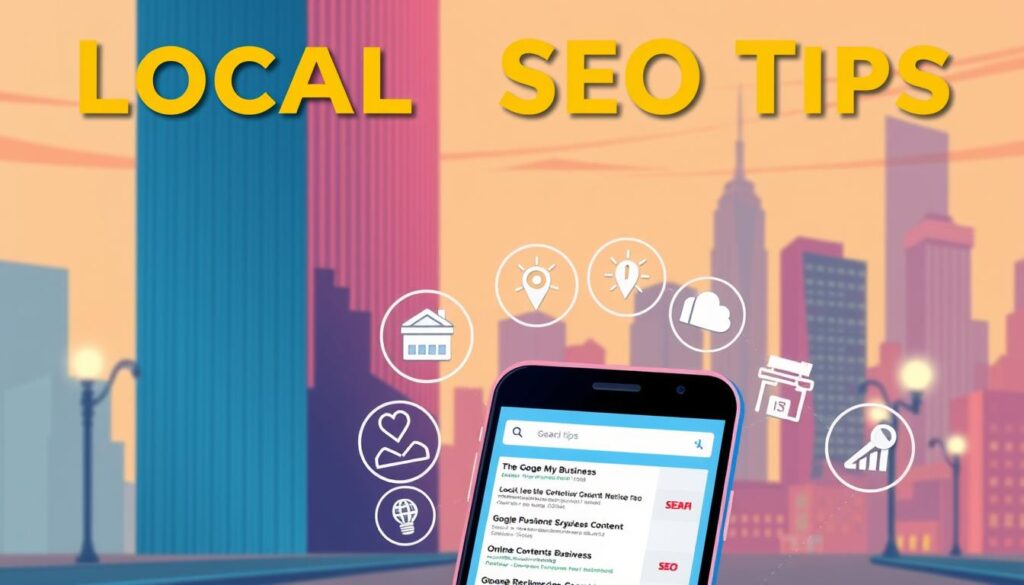In today’s competitive digital landscape, businesses across the UK are seeking effective ways to drive traffic, boost conversions, and maximise their return on investment (ROI). This is where a PPC agency comes into play, offering specialised expertise to elevate your advertising efforts.
A PPC agency operates by managing your pay-per-click campaigns, ensuring that your ads reach the right audience at the right time. By leveraging data-driven insights and expert strategies, these agencies can significantly enhance your brand’s visibility and drive high-quality traffic to your website.
Hiring a PPC agency offers numerous advantages over managing campaigns in-house. For instance, agencies bring years of experience, advanced tools, and a deep understanding of the ever-evolving digital advertising landscape. They can optimise your campaign for better performance, ensuring that every pound spent generates measurable results.
With a focus on UK-specific strategies, a reputable PPC agency can help you navigate the unique challenges and opportunities of the British market. From keyword research to campaign optimisation, their expertise ensures that your advertising efforts are both efficient and effective.
In this comprehensive guide, we will explore the ins and outs of PPC marketing, providing actionable tips and UK-focused strategies to help you make the most of your advertising budget. Whether you’re just starting out or looking to refine your existing approach, this guide is designed to empower you with the knowledge you need to succeed.
Key Takeaways
- A PPC agency specialises in managing and optimising pay-per-click campaigns to drive traffic and conversions.
- Hiring a PPC agency offers advantages such as expert knowledge, advanced tools, and improved campaign performance.
- UK-focused PPC strategies can help businesses navigate the unique challenges of the British market.
- PPC campaigns can be continuously optimised to improve return on advertising spend (ROAS).
- This guide provides comprehensive insights into PPC marketing, including planning, execution, and advanced strategies.
For more information on how PPC marketing can benefit your business, visit our dedicated resource page.
Understanding the Role of a PPC Agency
As a business owner in the UK, you’re likely exploring ways to enhance your online presence and drive growth. This is where a PPC agency becomes invaluable. A PPC agency specializes in managing and optimizing pay-per-click campaigns to maximize your return on investment (ROI). Their expertise lies in creating and executing targeted ads that appear on search engines and display networks, ensuring your message reaches the right audience at the right time.
What is a PPC Agency?
A PPC agency is a specialized firm that focuses on paid advertising campaigns. They handle everything from keyword research to ad copywriting, bid management, and performance tracking. By leveraging advanced tools and data-driven strategies, these agencies ensure your ads are not only seen but also drive meaningful interactions with your target audience.
Agency Expertise vs. In-House Teams
While in-house teams can manage PPC campaigns, agencies bring unparalleled expertise. They offer access to advanced tools, scalable solutions, and unbiased strategies tailored to your business needs. Agencies continuously monitor and optimize campaigns, ensuring cost-efficiency and improved performance. This level of specialized knowledge is often beyond the capacity of in-house teams, making agencies a valuable asset for businesses aiming to thrive in competitive markets.
By partnering with a PPC agency, you gain a dedicated team that focuses solely on your advertising success, helping you achieve your business goals effectively.
Establishing Your PPC Goals and Business Needs
Setting clear objectives is crucial for any successful PPC campaign. By aligning your goals with your business needs, you create a roadmap that guides your strategy and ensures measurable outcomes. A well-defined approach helps you stay focused and maximises your return on investment.
Initial Consultation and Goal-Setting
The journey begins with an initial consultation. This step involves understanding your business, identifying opportunities, and setting specific, measurable goals. A skilled team will work closely with you to outline what you want to achieve, whether it’s increasing sales, generating leads, or boosting brand awareness. Clear goals ensure your campaign stays on track and delivers the results you expect.
Defining Target Audience and KPIs
Understanding your target audience is key to a successful campaign. By defining your audience and setting key performance indicators (KPIs), you can track progress and make data-driven decisions. For example, if your goal is to increase sales, your KPIs might include conversion rates and lead form submissions. Aligning your strategy with your business needs ensures every effort is directed towards achieving your objectives.
With a clear strategy and well-defined goals, your PPC campaign is set up for success. Regular monitoring and adjustments ensure continuous improvement and optimal results.
how can a ppc agency help you
Discover how partnering with a PPC agency can transform your digital marketing efforts. By focusing on efficiency and precision, these experts can elevate your campaigns to drive real results.
Enhancing Ad Spend Efficiency
A PPC agency excels at managing your ad spend wisely, ensuring every pound is used effectively. They allocate your budget strategically, focusing on high-performing keywords and audiences to maximise your ROI. With continuous monitoring and optimisation, they reduce wasted spend, ensuring your ads reach the right people at the right time.
Driving Targeted Traffic and Conversions
Targeted traffic is key to boosting conversions. A PPC agency uses detailed audience insights to craft ads that resonate, leading to higher engagement and sales. By leveraging advanced tools, they make precise adjustments, enhancing your campaign’s performance and delivering measurable improvements.
With a PPC agency, you gain a partner dedicated to your success, helping you achieve your business goals effectively through efficient ad spend and targeted campaigns.
Mastering Keyword Research and Ad Creation
Effective keyword research and ad creation are the cornerstones of a successful PPC campaign. By understanding your audience and crafting compelling ads, you can drive higher conversions and improve your return on investment (ROI).
Techniques for Effective Keyword Research
A strong keyword strategy begins with tools like Google Keyword Planner and SEMrush. These tools help identify high-intent keywords that align with your target audience’s search behaviour. Focus on long-tail keywords, which often deliver higher conversion rates despite lower search volumes. For example, a fashion retailer saw a 120% increase in sales after adopting a long-tail keyword strategy.
Crafting Compelling Ad Copy and Visuals
Your ad copy should resonate with your audience, using clear and persuasive language. Pair this with high-quality visuals to enhance engagement. Consider A/B testing different ad variations to identify top performers. Ensure your ads are optimised for both desktop and mobile to capture a wider audience.
Regularly review your keyword performance and adjust your strategy to maintain optimal results. For more insights on refining your approach, visit our resource page or explore marketing consulting services to elevate your campaign performance.
Optimising Bids, Budgets and Conversions
Optimising your bids, budgets, and conversions is key to a successful PPC campaign. By refining these elements, you can ensure your advertising efforts yield the best possible results while maintaining cost efficiency.
Bid Management Strategies
Effective bid management is crucial for maximising your ROI. Start by identifying high-performing keywords and adjusting your bids accordingly. For example, increasing bids for keywords with high conversion rates can drive more targeted traffic. Conversely, reducing bids for underperforming keywords helps allocate your budget more efficiently.
Competitive industries often require careful bid management. In sectors like finance or legal services, where CPCs are higher, focusing on long-tail keywords can help you target specific queries without overspending. Regularly monitoring your bids and adjusting them based on performance data ensures your campaign remains competitive and cost-effective.
Budget Allocation and Cost Control
A well-structured budget allocation strategy is essential for optimising your PPC campaign. Assigning a larger portion of your budget to high-performing ad groups or campaigns can significantly improve your results. For instance, allocating 60% of your budget to top-performing campaigns can increase conversions by up to 30%.
Cost control measures, such as setting daily or monthly budgets, help you manage your spending effectively. Additionally, using negative keywords can reduce wasted spend by preventing your ads from appearing for irrelevant searches. This approach can improve your ROI by up to 20%.
| Strategy | Technique | Benefit |
|---|---|---|
| Bid Management | Adjust bids based on keyword performance | Increases conversion rates and reduces costs |
| Budget Allocation | Allocate more budget to top-performing campaigns | Improves overall campaign efficiency |
| Cost Control | Use negative keywords | Reduces wasted spend and improves ROI |
By implementing these strategies, you can optimise your bids, budgets, and conversions to achieve a higher ROI. Regularly reviewing and adjusting your approach ensures your campaign remains effective and aligned with your business goals. For more insights on refining your PPC strategy, visit our resource page.
Utilising Advanced Tools and Data-Driven Strategies
Advanced tools and data-driven strategies are revolutionising the way businesses approach PPC campaigns. By leveraging cutting-edge technology and actionable insights, companies can unlock new levels of efficiency and effectiveness in their digital marketing efforts.
Leveraging Analytics and Performance Tracking
Analytics tools like Google Analytics and Adobe Analytics provide a wealth of data to monitor campaign performance. These tools allow businesses to track key metrics such as click-through rates, conversion rates, and return on ad spend. With this information, businesses can make data-driven decisions to optimise their campaigns for better results.
Implementing A/B Testing and Automation
A/B testing is a powerful way to determine the most effective ad versions and creative elements. By comparing different ad variations, businesses can identify what resonates best with their target audience. Automation also plays a crucial role in streamlining bid management and campaign optimisation. Automated bidding strategies use AI to analyse data and adjust bids in real-time, ensuring maximum ROI.
For example, a retail brand saw a 30% increase in sales by integrating PPC with email campaigns for a seasonal sale. This demonstrates how advanced tools can significantly enhance campaign performance.
By utilising these advanced tools and strategies, businesses can gain a competitive edge in their digital marketing efforts. Continuous tracking and data access are essential for maintaining and improving campaign performance over time.
Integrating Social Media and Multi-Channel Campaigns
Combining social media with PPC creates a powerful strategy that enhances your online presence. This integrated approach ensures your message reaches a broader audience, driving engagement and conversions across multiple platforms.
Benefits of Cross-Channel Advertising
Cross-channel campaigns offer several advantages. They improve brand visibility, allow precise audience targeting, and increase the likelihood of customer interactions. By aligning your social media and PPC efforts, you can create a cohesive message that resonates across different platforms.
Using Audience Segmentation for Better Targeting
Segmenting your audience helps tailor your ads to specific groups, boosting relevance and engagement. For example, targeting users who clicked on your PPC ads with similar social media content can lead to higher conversion rates. A retail company saw a 25% increase in sales by integrating their PPC and social media campaigns.
| Strategy | Technique | Benefit |
|---|---|---|
| Cross-Channel Integration | Combine social media and PPC campaigns | Enhanced brand visibility and engagement |
| Audience Segmentation | Target specific audience groups | Increased relevance and conversions |
| Consistent Messaging | Align messages across platforms | Stronger brand recognition |
By leveraging cross-channel insights, you can refine your marketing strategy, ensuring optimal performance and growth. This holistic approach is key to maximizing your digital marketing efforts.
Navigating Challenges in PPC Campaign Management
Managing a successful PPC campaign can be challenging, especially with issues like high bidding costs and ad saturation. These challenges can make it tough to achieve the desired results. However, with the right strategies, you can overcome these obstacles and keep your campaigns effective.
Overcoming High Bidding Costs and Ad Saturation
High bidding costs and ad saturation are common issues in paid media. These challenges can lead to increased expenses and reduced campaign efficiency. To address this, focus on refining your keyword strategy. Targeting long-tail keywords, for example, can help reduce competition and improve conversion rates.
Another effective approach is adjusting your audience segmentation. By tailoring your ads to specific groups, you can increase relevance and engagement. For instance, retargeting users who have previously interacted with your ads can lead to higher conversion rates.
| Strategy | Technique | Benefit |
|---|---|---|
| Keyword Refinement | Target long-tail keywords | Reduces competition and improves conversion rates |
| Audience Segmentation | Retargeting and custom audiences | Increases relevance and engagement |
| Continuous Monitoring | Regular data analysis | Maintains campaign stability and adapts to market changes |
Regular monitoring and timely data analysis are crucial for maintaining campaign stability. By staying proactive, you can adjust your strategies to navigate competitive market conditions effectively. This approach ensures your paid media efforts remain efficient and deliver the desired results.
Conclusion
As you explore the world of digital marketing, it’s clear that expertly managed ads can transform your business. Setting a well-defined goal is the first step towards achieving measurable success. Partnering with specialists who bring deep expertise ensures your campaigns are optimised for the best possible results.
By focusing on data-driven decisions and continuous optimisation, you can enhance your return on investment. Integrating multi-channel advertising and advanced tools further boosts efficiency. It’s time to act on these insights and elevate your business.
Ready to take the next step? Visit our resource page to discover how PPC can benefit your business. Let’s work together to drive growth and success in the ever-evolving digital landscape.
FAQ
What makes a PPC agency beneficial for my business?
A PPC agency offers expertise in managing paid media campaigns, ensuring your ad spend is efficient and targeted. They handle keyword research, ad creation, and performance tracking, allowing you to focus on your core business while driving conversions and ROI.
How does a PPC agency improve my ad spend efficiency?
By conducting thorough keyword research and optimising bids, a PPC agency ensures your budget is used wisely. They focus on high-performing keywords and strategies to maximise your ROI and reduce wasted spend.
What role does keyword research play in PPC success?
Keyword research is crucial for identifying terms your audience uses. A PPC agency uses tools like Google Ads to find relevant keywords, ensuring your ads appear in the right searches and attract targeted traffic.
How can I measure the performance of my PPC campaign?
Agencies use analytics tools to track metrics like CTR, conversions, and cost per click. Regular reporting provides insights into what’s working and areas for improvement, ensuring your campaign stays on track to meet your goals.
Why is bid management important in PPC?
Effective bid management balances reaching your target audience without overspending. A PPC agency adjusts bids based on performance data, ensuring you pay the right amount for each click and stay within your budget.
How does a PPC agency handle budget allocation?
By analysing campaign data, an agency allocates your budget to high-performing ads and keywords. This approach ensures maximum ROI and aligns your spending with your business objectives.
What tools do PPC agencies use for campaign management?
Agencies rely on platforms like Google Ads, Google Analytics, and advanced bidding tools. These technologies help optimise campaigns, track performance, and implement strategies like A/B testing and automation.
Can a PPC agency integrate my campaign with social media?
Yes, PPC agencies often manage cross-channel campaigns, including social media. By segmenting your audience and aligning messaging across platforms, they create a cohesive strategy that enhances your brand’s reach and engagement.
How does a PPC agency overcome challenges like high bidding costs?
Agencies use strategic bidding, keyword optimisation, and ad copy refinement to improve ad relevance and reduce costs. They also monitor campaign performance to avoid ad saturation and ensure sustained growth.










